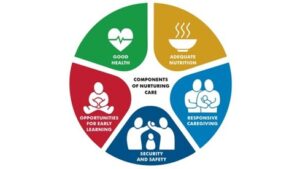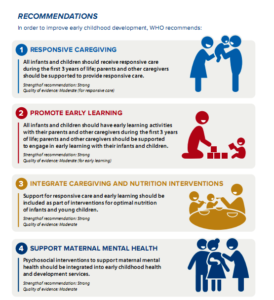Child development is a crucial process that lays the foundation for a person’s future physical, emotional, social, and cognitive well-being. The early years of a child’s life are a time of rapid brain development, where experiences and interactions shape neural connections that influence their ability to learn, communicate, and manage emotions.

Key aspects of child development include:
- Cognitive Development: Children learn how to think, reason, and solve problems. Stimulating environments and early learning opportunities, such as reading, playing, and exploration, help build critical thinking skills and intellectual curiosity.
- Emotional and Social Development: Learning to regulate emotions and interact with others is essential for building healthy relationships. A child who experiences love, stability, and positive reinforcement will develop self-esteem and empathy, which are crucial for long-term mental health.
- Physical Development: Physical activity, and motor skill development support growth and physical health. Fine and gross motor skills, like grasping objects or running, are developed through play and movement.
- Language Development: Communication skills are vital for expressing needs, thoughts, and emotions. Early exposure to language through talking, reading, and singing helps children develop vocabulary, speech, and understanding.
- Moral and Ethical Development: Early childhood is also a period for developing a sense of right and wrong, learning values, and building a conscience. Positive role models and structured environments contribute to forming ethical behavior.
- Nutritious Food: critical for brain and physical development. A balanced diet with fruits, vegetables, proteins, and whole grains supports growth, cognitive function, and overall health. Limiting processed foods and sugar helps prevent obesity and related health issues.
Investing in child development through education, healthcare, and supportive family environments ensures that children can reach their full potential, impacting their success and overall quality of life later in adulthood. Early interventions and nurturing environments can mitigate challenges, ensuring more equitable opportunities for children from all backgrounds.
Check out the below Guideline of the WHO “World Health Authorities” on improving early childhood development.

